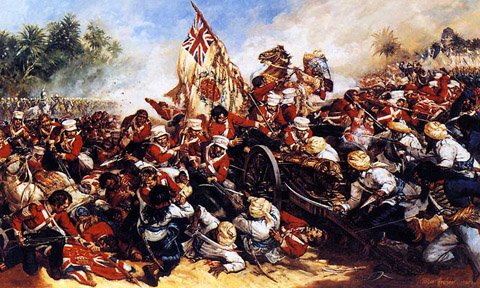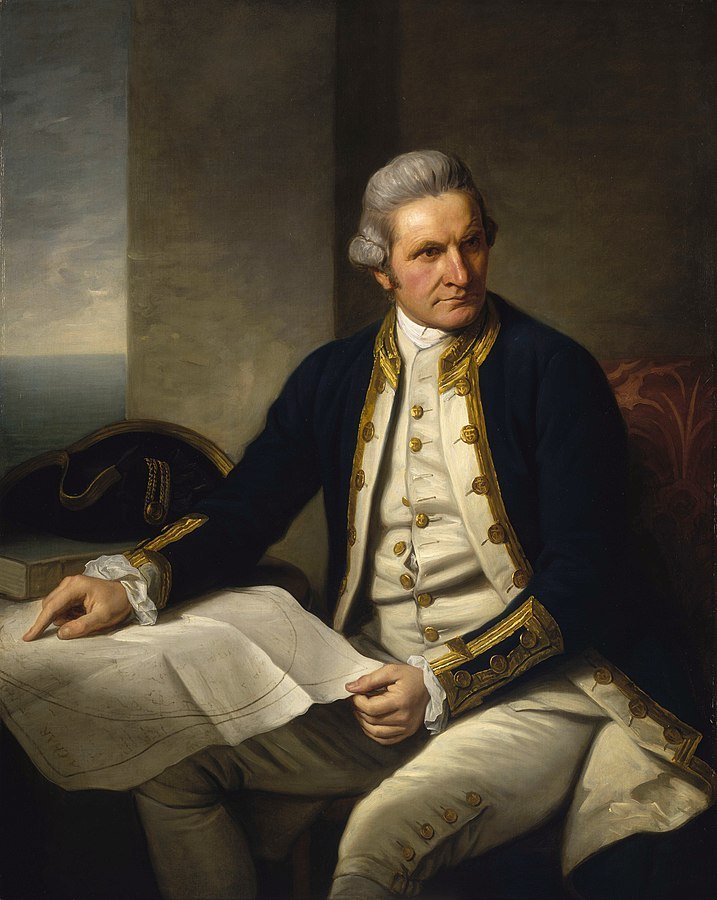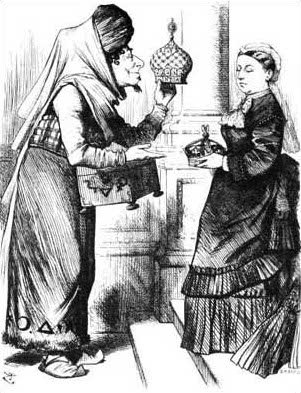The Rise of the British Empire

Exploration of the Pacific
Since 1718, transportation to the American provinces had been a punishment for different criminal offenses in Britain, with around one thousand convicts transported every year over the Atlantic.Forced to locate an option area after the loss of the 13 Colonies in 1783, the British government swung to the newfound terrains of Australia.The western bank of Australia had been found for Europeans by the Dutch adventurer Willem Jansz in 1606 and was later named New Holland by the Dutch East India Company, however there was no endeavor to colonize it. In 1770 James Cook found the eastern shore of Australia while on a logical voyage toward the South Pacific Ocean, guaranteed the mainland for Britain, and named it New South Wales. In 1778, Joseph Banks, Cook's botanist on the voyage, exhibited confirmation to the legislature on the appropriateness of Botany Bay for the foundation of a reformatory settlement, and in 1787 the principal shipment of convicts set sail, touching base in 1788. Britain kept on transporting convicts to New South Wales until 1840.The Australian provinces got to be gainful exporters of fleece and gold, for the most part in light of expeditions for unheard of wealth in the state of Victoria, making its capital Melbourne the wealthiest city on the planet and the biggest city after London in the British Empire.
Amid his voyage, Cook additionally went by New Zealand, initially found by Dutch wayfarer Abel Tasman in 1642, and asserted the North and South islands for the British crown in 1769 and 1770 separately. At first, connection between the indigenous Māori populace and Europeans was restricted to the exchanging of merchandise. European settlement expanded through the early many years of the nineteenth century, with various exchanging stations set up, particularly in the North. In 1839, the New Zealand Company declared arrangements to purchase expansive tracts of land and set up settlements in New Zealand. On 6 February 1840, Captain William Hobson and around 40 Maori boss marked the Treaty of Waitangi.This arrangement is considered by numerous to be New Zealand's establishing archive, yet contrasting translations of the Maori and English forms of the content have implied that it keeps on being a wellspring of question.
War with Napoleonic France

England was tested again by France under Napoleon, in a battle that, dissimilar to past wars, spoke to a challenge of belief systems between the two nations.It was not just Britain's position on the world stage that was undermined: Napoleon debilitated to attack Britain itself, pretty much as his armed forces had overwhelm numerous nations of mainland Europe.
The Napoleonic Wars were along these lines ones in which Britain contributed a lot of capital and assets to win. French ports were barricaded by the Royal Navy, which won a definitive triumph over a Franco-Spanish armada at Trafalgar in 1805. Abroad settlements were assaulted and possessed, including those of the Netherlands, which was attached by Napoleon in 1810. France was at long last crushed by a coalition of European armed forces in 1815.Britain was again the recipient of peace settlements: France surrendered the Ionian Islands, Malta (which it had involved in 1797 and 1798 separately), Mauritius, St Lucia, and Tobago; Spain surrendered Trinidad; the Netherlands Guyana, and the Cape Colony. England returned Guadeloupe, Martinique, French Guiana, and Réunion to France, and Java and Suriname to the Netherlands, while picking up control of Ceylon (1795–1815)
Abolition of slavery
With support from the British abolitionist development, Parliament authorized the Slave Trade Act in 1807, which canceled the slave exchange the domain. In 1808, Sierra Leone was assigned an official British settlement for liberated slaves. The Slavery Abolition Act go in 1833 canceled subjection in the British Empire on 1 August 1834 (except for St. Helena, Ceylon and the regions controlled by the East India Company, however these avoidances were later revoked). Under the Act, slaves were allowed full liberation after a time of 4 to 6 years of "apprenticeship".
Britain's imperial century (1815–1914)
Somewhere around 1815 and 1914, a period alluded to as Britain's "majestic century" by some historians,around 10,000,000 square miles (26,000,000 km2) of domain and approximately 400 million individuals were added to the British Empire.Victory over Napoleon left Britain with no genuine worldwide adversary, other than Russia in focal Asia.Unchallenged adrift, Britain embraced the part of worldwide policeman, a situation later known as the Pax Britannica,and an outside approach of "breathtaking confinement". Nearby the formal control it applied over its own particular provinces, Britain's prevailing position in world exchange implied that it viably controlled the economies of numerous nations, for example, China, Argentina and Siam, which has been described by a few students of history as "Casual Empire".
English magnificent quality was supported by the steamship and the broadcast, new advancements created in the second 50% of the nineteenth century, permitting it to control and safeguard the domain. By 1902, the British Empire was connected together by a system of broadcast links, called the All Red Line.
East India Company in Asia

The East India Company drove the development of the British Empire in Asia. The Company's armed force had initially united with the Royal Navy amid the Seven Years' War, and the two proceeded to co-work in fields outside India: the ousting of Napoleon from Egypt (1799), the catch of Java from the Netherlands (1811), the securing of Singapore (1819) and Malacca (1824) and the annihilation of Burma (1826).
The East India Company drove the development of the British Empire in Asia. The Company's armed force had initially united with the Royal Navy amid the Seven Years' War, and the two proceeded to co-work in fields outside India: the ousting of Napoleon from Egypt (1799), the catch of Java from the Netherlands (1811), the securing of Singapore (1819) and Malacca (1824) and The annihilation of Burma (1826).
Amid the late eighteenth and mid nineteenth hundreds of years the British Crown started to accept an inexorably huge part in the issues of the Company. A progression of Acts of Parliament were passed, including the Regulating Act of 1773, Pitt's India Act of 1784 and The Charter Act of 1813 which directed the Company's issues and set up the sway of the Crown over the domains that it had procured. The Company's possible end was encouraged by the Indian Rebellion, a contention that had started with the revolt of sepoys, Indian troops under British officers and discipline. The disobedience took six months to stifle, with overwhelming death toll on both sides. The next year the British government broke down the Company and accepted direct control over India through the Government of India Act 1858, building up the British Raj, where a named senator general managed India and Queen Victoria was delegated the Empress of India.
India turned into the realm's most profitable ownership, "the Jewel in the Crown", and was the most essential wellspring of Britain's quality.
A progression of genuine harvest disappointments in the late nineteenth century prompted to boundless starvations on the subcontinent in which it is assessed that more than 15 million individuals passed on. The East India Company had neglected to execute any planned arrangement to manage the starvations amid its time of run the show. Later, under direct British control, commissions were set up after every starvation to research the causes and execute new approaches, which took until the mid 1900s to have an impact.
Contention with Russia

Amid the nineteenth century, Britain and the Russian Empire competed to fill the power vacuums that had been left by the declining Ottoman Empire, Qajar line and Qing Dynasty. This contention in Central Asia came to be known as the "Incomparable Game".As far as Britain was concerned, massacres exacted by Russia on Persia and Turkey exhibited its majestic desire and abilities and stirred feelings of trepidation in Britain of an overland intrusion of India.In 1839, Britain moved to pre-empt this by attacking Afghanistan, however the First Anglo-Afghan War was a debacle for Britain.
At the point when Russia attacked the Turkish Balkans in 1853, feelings of dread of Russian strength in the Mediterranean and Middle East drove Britain and France to attack the Crimean Peninsula to crush Russian maritime capabilities.he following Crimean War (1854–56), which included new methods of cutting edge warfare,and was the main worldwide war battled amongst Britain and another majestic power amid the Pax Britannica, was a resonating annihilation for Russia.The circumstance stayed uncertain in Central Asia for two more decades, with Britain attaching Baluchistan in 1876 and Russia adding Kirghizia, Kazakhstan, and Turkmenistan. For some time it created the impression that another war would be unavoidable, however the two nations achieved a concurrence on their individual effective reaches in the locale in 1878 and on every single remarkable matter in 1907 with the marking of the Anglo-Russian Entente.
~ Thanking you
Ishan Pandey
Source :- https://en.wikipedia.org/wiki/Timeline_of_British_diplomatic_history#1815.E2.80.9396
https://books.google.co.in/books?id=iTZSFcfBas8C&redir_esc=y&hl=en https://en.wikipedia.org/wiki/British_colonization_of_the_Americas
Pictures :- https://en.wikipedia.org/wiki/File:Relief_of_the_Light_Brigade.png
https://en.wikipedia.org/wiki/File:Victoria_Disraeli_cartoon.jpg
Awesome !! The British Empire had taken over half of the world . Waiting for the next part :D
yes , for sure they kicked some assess but then there were many atrocities also committed against humanity by the British rule .
thanx
Look up George i (one)
House of Hanover
Saxe Coburg Gotha Hesse Holstein
Holy Roman Empire
The Crown ain't English ;)
There was no British Empire only cousins competing for sqaures on a checker board ... maybe even more simplistic than that.
I have covered that in Part 1 :)
great stuff. Just a heads up you've got "histroy" not "history" as your tag so it might make it harder for people to find this post. Cheers!
Thank you so much for correcting the error !! Much appreciated :D